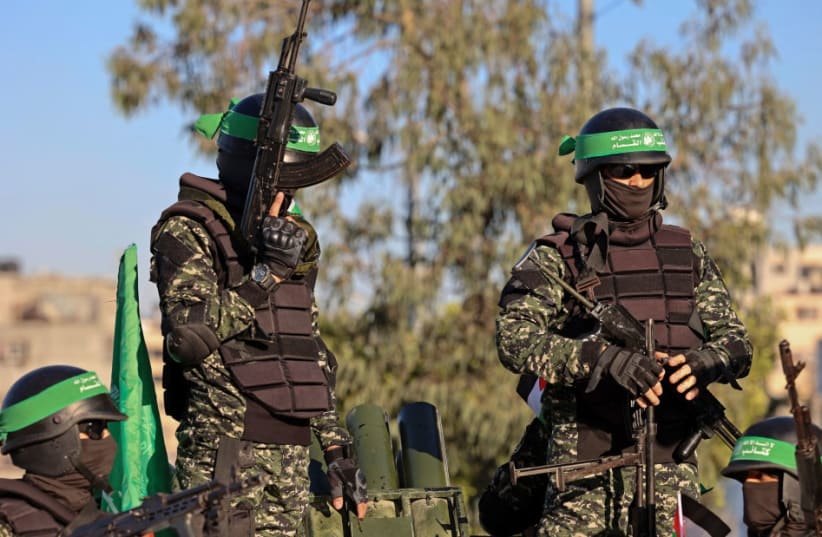In July, the IDF said that it had killed 17,000 Hamas terrorists.
Since then, if one adds up the number of times that the IDF said it killed dozens of terrorists in one day or more, the number of Hamas dead would need to have climbed to at least 18,000 and maybe even 19,000.
And yet recently, IDF sources said that the number of killed Hamas forces is at around 15,000.
How did 3,000-4,000 Hamas operatives come back to life in the last four months?
Moreover, this is not the first time that the IDF or the government has had to walk back statistics.
Up until February 1, defense officials had said Israel had killed around 10,000 Hamas forces.

By February 12, Prime Minister Benjamin Netanyahu was saying the IDF had killed 12,000 Hamas forces.
Real-time defense number
Although in real-time multiple defense sources said the number was still closer to 10,000/10,500, within days, the IDF had shifted its total to be consistent with what Netanyahu had said publicly.
At some later date, the IDF walked back the numbers to their original calculation, such that the assumption would have been that the July estimate was a solid estimate.
Yet, the IDF has now again revised down its estimates of how many of Hamas it has killed.
How can Israel and the IDF make assessments about the future of the war and how long it will take to truly defeat Hamas after any ceasefire without having cold-hard factual numbers which are not based on wishful thinking?
It is pretty clear that given an unlimited amount of time, the IDF could eventually eliminate Hamas as a fighting force.
But time is not unlimited.
A couple months into the war, almost the whole world had turned on Israel other than the US.
Several months into the war, the Biden administration skipped vetoing a UN Security Council Resolution criticizing Israel.
By May, US President Joe Biden went public with having frozen some of the munitions which Israel needed for continuing the fight against Hamas and Hezbollah.
Since then a weapons freeze has been talked about on and off on a regular basis.
Further, both presidential candidates, Vice President Kamala Harris and former president Donald Trump, have made it clear that they want the war to end soon and certainly before inauguration day in mid-January.
And large portions of the Israeli public want the war to end soon, many of whom wanted it to end around late Spring as part of a deal to get the Israeli hostages back from Hamas.
There was a point in the war where maybe an argument could be made for greasing the statistics a bit as part of the psychological warfare which Hamas and Hezbollah were also playing aggressively.
However, that time period passed a long time ago and if there were any doubts, they should have revised downward for the highest level of accuracy long before the IDF’s July announcement.

One hopes that this will be the last sudden revision downward by the IDF of its statistics on how many Hamas fighters have been killed.
Continued significant revisions of the numbers not only raises doubts about the IDF’s credibility of reporting on basic war statistics, it also harms Israel’s public relations war to reduce the quantity of Palestinian civilians its critics can say have been killed.
If 43,000 Palestinians have been killed, it makes a difference whether 25,000 were civilians or 30,000 were civilians, and it makes a difference whether Israel’s arguments on the issue remain consistent and based on evidence or whether they are viewed as politicized.
The IDF has dismantled Hamas’s 24 battalions. It is a fact that can be seen in the field. No one needs to exaggerate numbers to prove this more.
At the same time, Hamas has thousands or more fighters who have faded in with the civilian population and will be waiting to return when they think the moment is right.
Saying more of them are dead than really are and not taking this threat fully seriously will not help Israel in the future.
